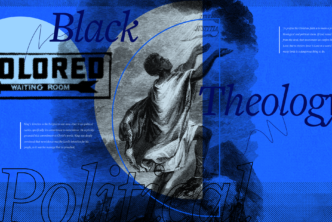The doctrine of the resurrection has drastic implications for life here and now. If Christ was resurrected on the third day, then there are necessary truths that follow which should seriously impact one’s worldview. This article discusses how the resurrection is evidence of life after death which in turn should affect one’s view of philosophy.
The doctrine of the resurrection: evidence
Though many people simply accept Christ’s resurrection on the basis of an inner conviction, there are adequate reasons from empirical evidence to accept the factuality of Christ’s resurrection as a historical event based upon the minimal facts accepted by the most critical scholars.1 Gary Habermas notes the following generally accepted evidences; three for Christ’s death, and nine for his resurrection:
- Jesus died and was reported by “numerous ancient historical sources” from “several primitive, highly respected traditions that actually predate the New Testament books” and
- medical facts of the death by crucifixion are “clearly ascertainable,”2 and
- “the earliest disciples at least believed that Jesus had been raised from the dead,” and they could not have believed he was raised from the dead if he was in his debilitated body; some miraculous change must have taken place in the eyes/belief of the disciples.
Concerning the resurrection Habermas notes:
- the consensus regarding the early testimony of Christ’s resurrection in 1 Cor. 15:3-8,
- Paul claims to have witnessed the risen Christ in multiple places,
- Paul was accurate in his report of Christ’s appearance,
- resurrection reports were made by other apostles,
- James was converted from his skepticism due to a claimed resurrection appearance,
- there are post-mortem appearances of Christ in “a number of Creedal statements in the book of Acts,”
- Jesus’ tomb was empty,
- the witnesses were transformed from fear to bold faith to the point of embracing martyrdom, and
- the resurrection was the central tenant of early Christian belief.3
Based upon the evidence, one is epistemologically warranted from pragmatic evidence to accept Christ’s resurrection as a factual historical event, and thereby, life after death is possible. This event has proven to have drastic effects on one’s worldview, commonly the area of philosophy. This examination will now seek to show how the resurrection affects the separate areas of philosophy.
Epistemology
Alvin Plantinga has argued that belief in God is a properly basic belief apart from evidence.4 However, this argument does not eliminate the value of evidence for a belief in God typically associated with foundationalism.5 Another epistemological school that has proven popular is coherentism since in theory truth must cohere with other truths.6 Those who practice classical apologetics typically argue for the supremacy of theism’s worldview before arguing for Christianity’s supremacy within theistic frameworks compared to alternative religions. Empiricism has its basic thought process on the role of experiences via perceptual observations.7 These views, as can other forms of epistemology, need not be mutually exclusive but can be seen as correlative.
The Scriptures seem to imply that one must be convinced of God’s existence before they draw near to God (Heb. 11:6), which only happens through Christ’s mediation (John 14:6), via faith in the death, burial, and resurrection (Rom. 4:23-24). However, Christ declared that if one does not believe in the Word of God revealed by Moses, they would not believe one was raised from the dead (Luke 16:31). Though the order of belief in God must precede belief in the resurrection of Christ in the Bible’s testimony, the first does not require the second, nor is time table prescribed. Instead, it would seem logical that if Christ were raised from the dead, as he had predicted on multiple occasions and attested to by multiple witnesses, then it would appear that Christ’s testimony is a credible witness.8 As such, the rest of Christ’s testimony would warrant acceptance within a form of coherentism, with the resurrection being a foundational belief giving Christ credibility in other assertions absent some detracting evidence that would undermine this credibility.9
Metaphysics
The factuality of Christ’s resurrection also brings some concerns to metaphysical philosophy. Some metaphysics stress a unified person, however, life after death seems to demand at least a type of dualism. As noted above, Christ’s testimony should be seen as valid since his credibility is warranted in light of the resurrection. Christ described a type of dualism when he warned the disciples that they ought to fear God over man since mankind can kill the body but not the soul. This seems that Christ implied that the soul can exist apart from the body. While this could be accepted on foundational and coherentist views, there is empirical evidence that Habermas has noted for just such a disjunction of soul from body via studies concerning near-death experiences.10 Upon Christ’s testimony, and the evidence of NDE’s upon Christ’s death there was a time when His soul departed from His body. However, the resurrection of Christ also shows that the soul can be reunited with the body and that this hope has ramifications for how one should live.
Axiology
Ethics
The doctrine of the resurrection is based upon the reality of Christ’s death. This death is presented as an atonement for sin which mankind had been unable to overcome throughout the text of Scripture (see Ps. 14, Rom. 3, etc.). However, in the OT, a new covenant was promised that entailed the ability to fulfill the law of God changing the ethical propensity of God’s people. That covenant was announced at the last supper of Passover. During that meal, Jesus said “‘This is my body, which is given for you’. . . And likewise . . . ‘This cup that is poured out for you is the new covenant in my blood’” (Luke 22:19-20) before being immediately betrayed to have his body broken and his blood spilled. With Christ’s death the new covenant had come, but there is seemingly no way of intrinsically changing the ethical capacity of His followers. During that meal, Jesus promised the coming of the Holy Spirit. Through the progress of revelation, one can see that this would have drastic ramifications on the disciple’s capacity for ethical change. Though Christ had given the disciples a limited pneumatology immediately before the crucifixion, that doctrine would mature through the writings of the apostle Paul. It is Paul who announced that it was the Holy Spirit of God, who raised Jesus from the dead that this same Holy Spirit who raised Jesus from the dead now indwelled believers (Rom. 8:11), and that this allowed them to bear ethical fruit which had been long lacking (Gal. 5:22-24). The doctrine of the crucifixion established God’s hatred for, justice against, and gracious covering of sin (Rom. 5:6-9), but the resurrection enabled believers the power necessary to live life another way (Gal. 5:16-17). This means that the resurrection requires sanctification because we have been raised with Christ to walk in the newness of life (Rom. 6:4).
Aesthetics
Aesthetic is defined as being “of, relating to, or dealing with aesthetics or the beautiful.” However, in Philosophy it is “the science of the beautiful.”11 George Fullerton notes the reason for philosopher’s interest in aesthetics is identical to why they engage in ethics, “Those who have paid little attention to science or to philosophy are apt to dogmatize about what is and what is not beautiful just as they dogmatize about what is and what is not right.”12 Perhaps this is why Frank Gabelein has noted that “The arts pose uncomfortable problems for many evangelicals. There are those who question the relevance of the arts to Christian life and witness in these days of world upheaval. ‘Why,’ they ask, ‘spend time in this tragic age talking about such things as aesthetics?’”13 However, the Bible shows that aesthetics has been part and parcel of religion since Mosaic times. God revealed the plans for the tabernacle (Exod. 24:10-43), and later the plans of the temple (1 Chron. 28:11-12). God cared about the aesthetics of His house in the Old Testament, therefore one should not be surprised if the New Testament shows aesthetic concern as well (2 Tim. 2:20-21, 1 Pet. 2:4-8). The question becomes: What is aesthetically beautiful in theological terms for the New Testament age? Kristine Koro notes that the resurrection gives aesthetic hope for the transformation of our bodies and that this should influence art since we live in a society that has been inundated with images.14 If the resurrection occurred, then there is hope that the world and its inhabitants will be renewed and transformed to conform with God’s ordained intention. If this is the case, then surely the resurrection will impact aesthetics since “while we live, and move and have our being in the lifeworld of ‘not yet,’ the tomb of Jesus had to be empty so that our human bodies need not have to become empty tombs for all eternity.”
Logic
The last discipline of philosophy to be dealt with is logic. It is clear from scripture that the resurrection alone cannot cause belief, this is the work of God.15 Christ himself said that “If they do not hear Moses and the Prophets, neither will they be convinced if someone should rise from the dead” (Luke 16:31, ESV). The historicity of the resurrection is not independently sufficient to invoke faith. However, the resurrection does give the power to those who have believed Moses, and the words of Scripture to believe in Christ. Daniel Fuller has noted that though a person can reasonably interpret scripture through the means of logic and reason, they cannot “accept” the gospel apart from the work of the Holy Spirit, and it was not until the resurrection of Christ that the sending of the Holy Spirit was made possible (John 16:7).16 Because of that, the logic of humans can be redeemed in a way that submits willingly to God’s will allowing for great strides in all other areas of Philosophy as men like Alvin Plantinga have evidenced.17
The doctrine of the resurrection: implications for today
There is sufficient evidence that the resurrection is a historically verifiable event. Because the resurrection has occurred, philosophy, how one views the world, has been dramatically changed. This paper has briefly described how various branches of philosophy are touched by the Resurrection. The implication is that those who pursue wisdom must do so through the knowledge of the resurrected Christ.
Sign up for more great content from theLAB here.
- Craig, William Lane, Gary R. Habermas, John M. Frame, Kelly James Clark, and Paul D. Feinberg. Five Views on Apologetics. Edited by Steven B Cowan. Grand Rapids, MI: Zondervan, 2000, 99.
- Lane, et al, 106.
- Lane, et al, 108-111
- Alvin Plantinga, Knowledge and Christian Belief (Grand Rapids, MI: William B. Eerdmans Publishing Company, 2015).
- Jerry L. Walls and Trent Dougherty, Two Dozen (or so) Arguments for God, New York, NY: Oxford University Press. Kindle Edition, p. 3 where the authors note that “Plantinga has pointed out, however, and as Evans rightly recognized, it does not follow from the claim that rational belief in God in no way requires good theistic arguments, that none are in fact available.”
- Carl F. H.. Henry, God, Revelation and Authority (Set of 6): 1-6, Wheaton IL: Crossway, Kindle Edition, Kindle Locations 5013 where he notes that “A coherence view of truth claims must in some form be allowed to assess truth claims which are unobservable.” However, the view is epistemologically limited which Gordon Lewis, Testing Christianity’s Truth Claims, Lanham, MD: University Press of America, 1990 on p. 59 draws attention to by noting Buswell’s objection, “Taken positively coherence and consistency may characterize theories which later prove to be absurdities. And the correspondence of ideas with the ontological situation as evidence through an experimental process is also of merely negative value when properly employed.”
- Stanley Grenz, David Guretzki, and Cherith Fee Nordling, Pocket Dictionary of Theological Terms (Downers Grove, IL: InterVarsity Press, 1999), 44.
- In Millard J. Erickson, Christian Theology, 3rd ed. (Grand Rapids, MI: Baker Academic, 2013), 21, “From the name itself it should be apparent that Christianity is a movement that follows Jesus Christ. We would then logically look to him to state what is to be believed and what is to be done—in short, what constitutes being a Christian. Yet we have very little information outside the Bible regarding what Jesus taught and did. . . If Jesus taught that additional truth was to be revealed, that also is to be examined. If Jesus claimed to be God himself and if his claim is true, then of course no human has the authority either to abrogate or to modify what he has taught. The position that Jesus himself proposed in founding the movement is determinative, not what may be said and taught by others who at some later point may call themselves Christians.” Therefore, part and parcel of Christianity is a submission to authority, particularly the authority of the Scripture which Christ has endorsed, and those whom he commissioned to write on his behalf before his death.
- Ronald H. Nash, The Word of God and the Mind of Man (Phillipsburg, NJ: P&R Publishing, 1992); see also Plantinga, Knowledge and Christian Belief.
- Gary Habermas, The Blackwell Companion to Substance Dualism (Blackwell Companions to Philosophy) (p. 227-246). Wiley. Kindle Edition.
- George Stuart Fullerton, An Introduction to Philosophy (p. 163). Public Domain Books. Kindle Edition.
- Fullerton, 163.
- Frank E. Gaebelein, “The Aesthetic Problem: Some Evangelical Answers,” Christianity Today (Washington, D.C.: Christianity Today, 1965), 543.
- Suna-Koro, Kristine. “From Empty Tomb Toward Transfigured Bodies: Pondering Resurrection with Wit.” Spiritus 13, no. 2 (Fall, 2013): 217,234,308-309, 233.
- Suna-Koro, 218.
- Daniel Fuller, “The Holy Spirit’s Role in Biblical Interpretation,” in Scripture, Tradition and Interpretation, ed. W. Ward Gasque and William Sanford LaSor (Grand Rapids, Eerdmans, 1978), pp. 189-98.
- See William Lane Craig, in Craig, et.al., pp. 235 ff. for his praise of Plantinga.





